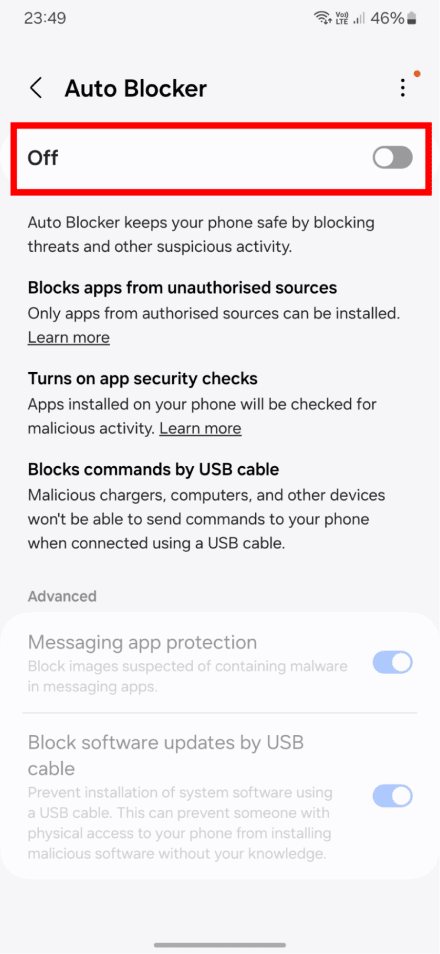Discovering why your ping is so high and ways to fix high ping
There are few things more annoying than an intermittent Internet connection speed. Web pages that load slowly, video playback errors, audio and video delays during calls, lags in video games are always a test for your nerves. It doesn’t matter whether we are talking about online gaming or a work video conference.
What is ping and RTT?
Ping is the time in milliseconds it takes for a data packet to reach the server and return. The term itself comes from the sound signal used in sonars — devices for determining the location of objects in water. But it has become an acronym for Packet Internet Groper in Internet slang. Another name for ping is round-trip time (RTT), the time it takes for data to travel back and forth.
Packet loss
Another concept closely related to ping is packet loss. Normally, all data packets a device sends should reach the target server. This condition is not always met: it may be hampered by poor Wi-Fi, network congestion, or hardware problems. Although Internet application protocols are typically designed to be loss-tolerant, it is essential to monitor this metric. It can be said that when packet loss exceeds 1%, the performance of interactive applications noticeably deteriorates.
How ping affects the quality of your Internet connection
Ping is an important metric for many online activities. For example, in online games, high latency can prevent you from competing and responding promptly to in-game events. In the case of game streaming, high ping, and packet loss negatively affect video quality and can lead to delays or even interruptions of the stream. In video conferencing, high ping can cause noticeable lags, making communication less natural and more tedious. As a result, many users are trying to figure out how to lower the ping to avoid the above problems.
What is the ping utility?

Ping time is a basic metric that helps evaluate the quality and connection speed between your device and other nodes on the network.
In addition, there is a command line utility of the same name, ping, designed to test the availability of a host on an IP network and measure RTT. It sends data packets to the specified address using the ICMP (Internet Control Message Protocol). The utility then waits for a response to determine if the packets have reached the target host and if they have returned. If a response is received, it measures the time it took to estimate the Internet speed.
In addition to RTT, the ping utility shows the percentage of packets lost, that is, the proportion of those that did not return to the sender.
How ping works and what different measurements mean
When you ping a device or server, you send a packet of data to the destination and wait for the response. If an ICMP packet successfully reaches the server and a response is returned, the server is accessible on the network, and the measured RTT gives an idea of the server's remoteness.
Low ping (0-30ms): Ideal for most online activities and especially important in online games where every millisecond counts. Ping values in this range indicate a very fast and stable connection.
Medium ping (30-50ms): Good ping for most online activities and usually won't cause any noticeable problems.
High ping (50-100ms and above): Can lead to noticeable lags, especially in fast-paced gaming scenarios or video conferencing. There may definitely be some minor inconveniences.
Very high ping (100ms or more): Causes severe lag and can significantly impact your ability to communicate online in real time.
How to measure ping
The ping utility was first created by Mike Muuss in 1983. It was designed for use with UNIX-based operating systems to identify and measure network problems. Today, it is available in all desktop operating systems and in mobile applications.
Measuring ping rate in different operating systems
Windows:
- Open a command prompt (press Win+R and type cmd)
- Enter the command ping [server address]. For example, ping google.com
*Press Enter and view the results
macOS:
- Open Terminal (can be found via Spotlight using Cmd + Space)
- Enter the command
ping [server address]
*Press Enter and check the results
Linux:
- Open Terminal
*Use the same command as for macOS
Smartphones (iOS/Android):
- Download and install a network testing app such as PingTools for Android or Network Ping Lite for iOS
- Enter the server address and run the test
Online services:
- Use online services such as Speedtest by Ookla to measure ping via web interface
Interpreting measurement results
The results of the ping measurement include the key indicators that interest us:
- Response time (ms) — the milliseconds it takes to send and receive one data packet. The lower this number, the better
- Packet loss (%) — the percentage of packets sent but for which responses were not returned. Ideally, there should be 0%, which means that all packets and responses to them arrived without loss
These metrics provide insight into how reliably and quickly your device can interact with other resources on the network. They are important for assessing the quality of your connection, especially if you enjoy online gaming, streaming, or running applications that require low latency.
Keep in mind that the ping can be affected by the remoteness of the server, the route to it, and the overall quality of your Internet connection. Results can vary depending on the time of day, so we recommend taking several measurements to get a complete picture.
The importance of ping

As we have already said, ping is one of the critical parameters determining the quality of an Internet connection. From gaming sessions to video conferencing, knowing how to lower ping and understanding this metric can improve the efficiency and comfort of using Internet services. Let's look at how ping affects your user experience in different scenarios.
How ping affects user experience
Ping, measured in milliseconds, reflects the delay between sending a request from your device and receiving a response from the server. For users, this means that the lower the ping, the more responsive the Internet service appears to be. In cases where you need to act quickly, for example, when playing online games or trading on financial markets, high ping can lead to a loss of success in the game or money in reality.
Impact of ping in different scenarios
Internet latency and packet loss manifest themselves differently depending on what you do.
- Online gaming: High ping can lead to lags that make the game less controllable and can lead to defeat when every millisecond counts
- Streaming: Delays can cause long loading times, reduce the quality of the video stream, and irritate viewers
- Video conferencing: High ping leads to “stuck” audio and video streams and can make it difficult for interlocutors to understand
- Loading web pages: High ping causes pages to load more slowly, leading to an increase of abandonment of a “slow” site even at the loading stage
What affects ping
To understand how to lower your ping, you must first consider the factors that affect it. Ping can be affected by various aspects of your network connection and hardware, ranging from physical distance to the server to network bandwidth.
How distance to server affects ping
One of the most prominent factors that affect ping is the distance between your device and the server you are connecting to. The network signal travels very quickly — at the speed of light in matter (for optical fiber, about 200,000 km/s). But given that the distance between continents can be 10–15 thousand kilometers, and cable routes are not optimal, pings between remote points can be tens and hundreds of milliseconds. The further the data travels, the longer it takes. If the game server or web service is located on another continent, the response time will be higher than if the server is in your city or country.
Impact of bandwidth and network load
The bandwidth of your Internet connection and all intermediate communication channels also affects ping. If the local network bandwidth is insufficient to service all data streams simultaneously, the ping may increase due to delays in their processing. Suppose one of the intermediate networks is overloaded due to the high activity of other users (for example, bulk file downloads or video streaming). In that case, this can lead to an increase in ping for all network participants. In addition to increased pings, packet loss may occur in such situations, degrading the connection's quality.
How online services reduce ping
Online services use various methods to fix high ping and provide the most efficient and fast access to data. These methods are aimed at optimizing data transmission routes and reducing delays. This is crucial for improving the user experience, especially in online games, streaming, and Internet telephony.
Routing optimization methods
Routing optimization involves using software to analyze and select the most efficient path for internet traffic between the user and the server. Various algorithms can redirect data in real-time through less busy network nodes or faster routes, thereby minimizing delays.
The role of caching and content delivery networks (CDNs)
Data caching is a technique in which copies of frequently accessed data are stored on intermediate servers located closer to the end user. Content delivery networks (CDNs), on the other hand, are servers distributed around the world that effectively cache content. These technologies reduce the distance data must travel from source to user, thereby reducing ping.
How to lower ping using Anycast and Split-horizon DNS
One of the technologies that global online services use is Anycast. It allows you to announce the same network of IP addresses from several points on the planet. In this case, user traffic will go to the nearest point of announcement of these IPs. Users in completely different locations will receive the same high-quality service and low ping. Knowledge of the existence of this technology is not very useful for end users, but it can, for example, help debug problems associated with long domain name resolution.
Another technology actively used is Split-horizon DNS. Its essence is to redirect users who access a specific domain name from different regions to special servers designed to serve these regions. The main goal of this technology is to reduce the physical distance (and ping) between the client and the server.
How to reduce ping: tips for users

Above, we described approaches on how to lower ping that online services use. The end-user toolkit is significantly narrower. However, there are ways to reduce ping here, too.
Unfortunately, you can't fool physics, and the finite signal speed is a fundamental limitation to reducing ping time. But something can still be done.
Set up hardware and software to fix high ping
Update your network drivers: Ensure you have installed the latest network adapter drivers on your computer.
Use a wired connection within your home network: A wired connection usually provides a more stable and faster connection than Wi-Fi.
Close background applications: Apps running in the background can compete for bandwidth, increasing your ping.
Configure QoS on your router: Quality of Service (QoS) will help you prioritize traffic for games and other essential tasks.
Update your router firmware: Latest firmware updates can improve connection performance and stability.
Change Game/App Settings: Some games and apps allow you to adjust network settings to reduce ping effectively.
Choosing an Internet provider and optimizing network settings
Choose a provider with better infrastructure. Sometimes, changing your provider to another that offers faster internet access or better routes to your target servers can significantly reduce your ping.
The provider must use exclusively wired, preferably optical, communication lines. Last mile, based on a radio channel (like the alternative in the form of Starlink), provides Internet even in hard-to-reach places, but its quality is unpredictable. It may, for example, depend on the weather.
Request route optimization from your provider. For business users, in some cases, the provider may be able to optimize routes based on the customer's request.
Use a VPN optimized for gaming. A VPN with optimized routes can answer "how to lower your gaming ping?", especially if you connect to servers in other regions.
Planning Internet sessions. Using your network during off-peak hours (such as late at night or early in the morning when most consumers are asleep) increases your chances of getting better throughput and a higher-quality connection.
Other methods how to get better ping
Besides changing basic settings and optimizing your hardware, there are other ways to reduce ping.
Test different DNS servers. We can say that DNS servers indirectly affect ping by contributing to the overall loading time of sites. If the DNS server is closer to the user or performs better, it can process DNS queries faster, reducing the delay before the web page starts loading.
Use a VPN. Sometimes, a VPN (Virtual Private Network) can reduce pings to selected servers compared to a direct connection. This effect is possible when the Internet provider and servers have suboptimal routes to target networks. However, the effect may be the opposite since most VPN services do not prioritize reducing ping. The only reliable way to test whether a VPN is helpful is to measure pings to the target server with the VPN turned on and off.
Use game accelerators and specialized software. Game accelerators and specialized programs to reduce ping, such as WTFast, NoPing, work on the principle of optimizing network routes. They can improve communication between your computer and the game server by routing traffic through their network. These programs often require a subscription but can be effective for players seeking an edge in online gaming. We recommend verifying the positive effect before paying for a subscription, as the result is not guaranteed.
These tips can improve your pings and make your Internet experience more comfortable.
Ping and the fastest VPN

If you use a VPN, you've probably noticed that when you choose VPN servers that are far away, you get slow Internet. Moreover, the further away the server is located, the more noticeable this is.
The reason is the increase in the physical distance data travels between you and the target online service — because now it also makes a "stop" at the VPN server. From a user's perspective, VPNs slow down the internet, and it's best to connect to the nearest VPN server to prevent this from happening.
AdGuard VPN is a VPN provider that measures ping values to its servers and displays them in the VPN app interface so you can connect to the closest location and get the fastest VPN.
As you can see, this is another area where pings make a big difference. As a VPN provider, we care about speed and take pings into account to provide the fastest VPN.
Conclusion
So, low ping and no packet loss are the keys to speed and comfortable Internet use. That being said, low ping becomes especially important when it comes to online activities requiring good connection quality. This applies, in particular, to gaming experience and streaming, audio and video conferencing, and online trading in financial markets.
Pings depend on the distance between the client and the server and, unfortunately, for physical reasons, cannot be reduced below specific values, but something can still be done.
Pings are important to remember when using a VPN because the lowest ping often means the fastest VPN.


































